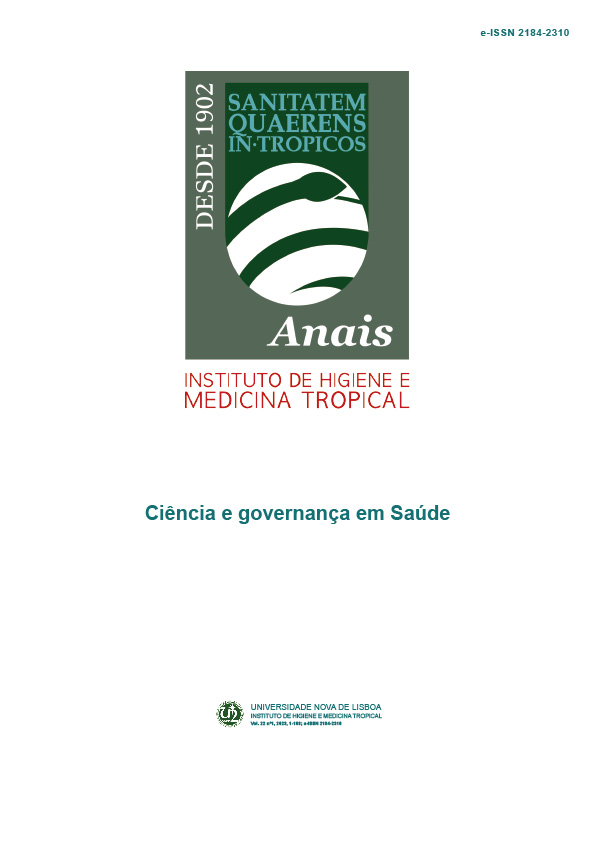O papel da Ciência na governação em Saúde
Resumo
O autor começa por abordar a problemática criada pela pandemia da COVID-19, doença nova, que atrapalhou os políticos, um pouco por todo o mundo, e os fez recorrer ao conselho de especialistas, mas nota que o problema é muito mais vasto e deve ver-se o papel da Ciência na gestão corrente da Saúde e mesmo de outros sectores.
Mostra como houve abordagens diferentes nos diversos países, mas em todos os casos, essa consulta aos especialistas foi feita por se tratar duma doença nova, que levou os políticos a terem de admitir que não tinham capacidade de gerirem a pandemia.
O autor analisa alguns dos modelos de consulta usados em diversos países e analisa as vantagens, inconvenientes e deficiên- cias de cada uma dessas modalidades de arranjo institucional.
O autor mostra também os resultados catastróficos na gestão da pandemia por políticos que totalmente desprezaram as opiniões científicas e decidiram gerir eles próprios a pandemia ou ignorá-la.
Refere, igualmente, o efeito nefasto das pressões dos lobbies económicos sobre os decisores políticos e mesmo sobre alguns cientistas. Mostra como esses efeitos nefastos da pandemia na economia foram largamente relatados pela comunicação so- cial e pelos políticos, mas como grandes negócios gerados pela pandemia foram deliberadamente silenciados.
O autor analisa igualmente as reacções dos diversos cientistas em relação a uma doença nova e denuncia as dificuldades de alguns cientistas em admitirem a sua ignorância em relação a essa doença nova.
O autor denuncia também o facto de, em muitos países, jornalistas e comentadores de jornais e televisões, só por terem captado o enunciado de alguns indicadores epidemiológicos, depressa se terem pretendido transformar em especialistas em análise epidemiológica, com os efeitos deletérios na opinião pública.
Mas a maior parte do seu texto é dedicado a analisar a necessidade de dar primazia à Ciência na gestão corrente da Saúde. O autor mostra como deve ser o modelo duma gestão baseada em evidência científica e da necessidade de criar e manter operacionais e actualizados os sistemas de informação para a gestão da Saúde. Mostra igualmente, os limites dos sistemas de informação para a gestão da Saúde e como é necessário por vezes complementá-los com investigação científica dirigi- da especificamente para o esclarecimento daquilo que se considera necessário saber para uma gestão científica do sector Saúde, bem como da importância de ter em conta, também, os resultados de investigação científica de carácter académico feita fora do contexto da gestão da Saúde, o que implica uma nova atitude, tanto por parte dos gestores de Saúde, como por parte dos investigadores académicos.
O autor evidencia como a colocação da Ciência no comando da governação dá resultados benéficos na qualidade da governação. O autor mostra a necessidade de vontade política para colocar a Ciência no comando da governação e aborda ainda a im- portância de, para esse efeito, se adoptarem novos critérios nas escolhas dos dirigentes políticos e técnico-administrativos. Por último, o autor considera estas considerações sobre o papel da Ciência na gestão corrente da Saúde extrapoláveis para outros sectores (Educação, Ciência e Tecnologia, Ambiente, Agricultura e Pescas, Segurança Alimentar, Abastecimento de Água e Energia, Obras Públicas e Habitação, Transportes e Comunicações, etc.).
Downloads

This work is licensed under a Creative Commons Attribution 4.0 International License.





